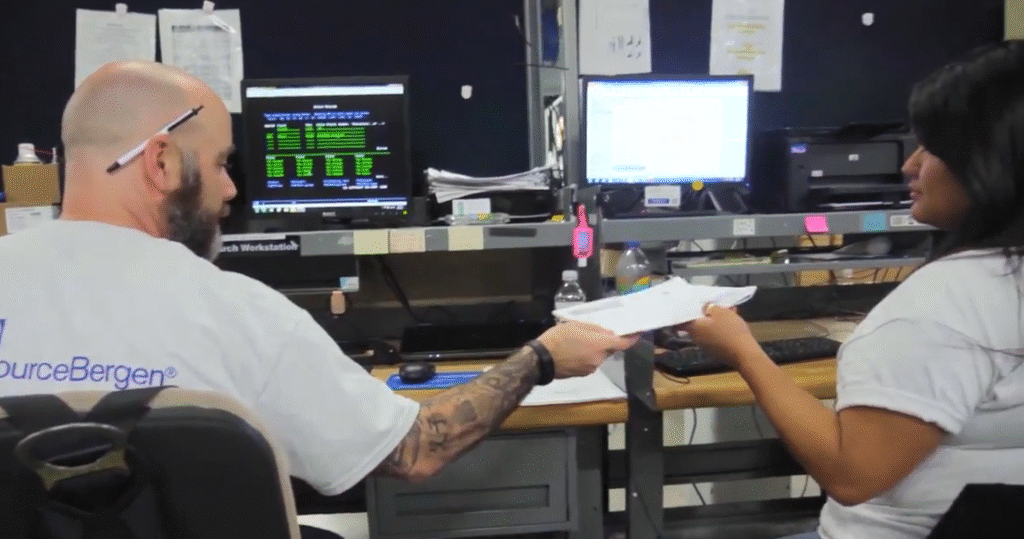Like ripples from a stone dropped into a still pond, the details of the Cencora data security incident surfaced with unnerving speed. The pharmaceutical distributor revealed that its systems had been compromised by a cyberattack in February 2024. The technical report quickly turned into a human story when patients and pharmaceutical companies learned that private financial and medical information had been compromised.
Although the actual number was most likely higher, the breach was confirmed to have impacted at least 1.43 million people by the middle of the year. This breach was strikingly similar to others in the healthcare industry, but it went beyond simple surface-level identification. Diagnoses, prescriptions, addresses, and even biometric information were among the sensitive cores of personal health information that it touched. Knowing that such private information had been compromised was upsetting and unsettling for patients who were already navigating difficult medical journeys.
Particularly involved in the incident was The Lash Group, a subsidiary of Cencora. Because of the subsidiary’s expertise in patient-support initiatives for pharmaceutical companies, its databases included the kinds of information that cybercriminals find particularly valuable. Due to the difficulty of replacing medical identities, that information can be misused in ways that are far more intrusive than a credit card theft. The hack demonstrated how distributors, manufacturers, and healthcare providers are all interconnected and thus vulnerable.
Table: Cencora Data Security Incident
| Category | Details |
|---|---|
| Company Name | Cencora, Inc. (formerly AmerisourceBergen) |
| Industry | Pharmaceutical distribution, patient services, healthcare technology |
| Incident Date | February 2024 (disclosed Feb. 21, 2024 to SEC) |
| Data Exfiltration | Names, addresses, birth dates, Social Security numbers, medical info, financial data, biometric data, more |
| Affected Individuals | At least 1.43 million (likely higher) |
| Subsidiary Involved | The Lash Group, LLC |
| Settlement Fund | $40 million (class action settlement) |
| Claim Deadline | January 19, 2026 |
| Final Approval Hearing | February 5, 2026 (Eastern District of Pennsylvania) |
| Reference | Cencora Notice of Data Security Incident |

Lawsuits merged into one action, Anaya et al. v. Cencora, Inc., by August 2025, and a settlement was agreed upon. In order to cover legal costs, compensate for losses, and make cash payouts, Cencora and The Lash Group agreed to contribute $40 million to a fund. Although no wrongdoing was acknowledged in the settlement, it did require increased security measures, acknowledging that previous safeguards had been inadequate. The offer of up to $5,000 for documented expenses was especially helpful to patients, even though the total amount was capped. Smaller payouts were promised to others, depending on the volume of claims submitted.
This settlement is noteworthy for both its timing and size. A series of cyberattacks have targeted the healthcare industry in recent days, with Change Healthcare and Ascension among the other well-known victims. Healthcare is particularly vulnerable, as the Cencora hack effectively reminded regulators, insurers, and providers. The information taken from medical systems is extremely durable, highly personal, and frequently has long-term effects, unlike information taken from retail or entertainment.
The Cencora case stood out for its breadth. With its involvement in about one-fifth of the US pharmaceutical distribution market, the company is associated with industry titans such as Pfizer, Bristol Myers Squibb, and Johnson & Johnson. When Cencora’s systems were breached, hundreds of thousands of patients and dozens of pharmaceutical companies were affected. This made the breach a collective event, highlighting the interconnectedness and high efficiency of modern healthcare systems.
Cyberattacks have caused disruptions in other industries, which observers have compared. Leaked celebrity emails were the public’s main focus during the 2014 Sony Pictures hack. The 2017 Equifax hack put financial vulnerability front and center. Medical records cannot be revoked or reissued with Cencora, so the disclosure of health information carries a different weight. Because of its permanence, the impact is remarkably similar to well-publicized privacy violations that left celebrities in shock, but it has wider ramifications for regular people.
Following the incident, Cencora pledged to strengthen cybersecurity. The business enhanced monitoring, strengthened encryption procedures, and engaged outside specialists. Even though these actions were a significant improvement, the harm had already been done. The reassurance of strengthened defenses didn’t seem as real to patients who received notification letters as the fear that their identities might already be leaking through illegal networks.
There is an optimistic viewpoint, though, to take into account. Even though the $40 million settlement was expensive, it might be especially creative in establishing new standards for responsibility. It makes it clear that businesses must do more than just offer an apology; they also need to make amends and support systemic change. Given that settlements must be both restorative and preventive, this dual approach reflects a change in regulatory expectations.
Broadly speaking, the hack rekindled discussions about online privacy. Selena Gomez and Jennifer Aniston are two celebrities who have previously supported movements that emphasize control over personal information and issues related to personal security and online safety. The Cencora incident demonstrates how patients’ demands for data protection are just as strong as their demands for safe treatments, demonstrating how these same worries are now resonating in the healthcare industry.
The incident’s effects on society also speak to public trust. Healthcare organizations depend on credibility, and clinical relationships may suffer if patients worry that their data is in danger. Advanced analytics can help providers provide more individualized care, but only if patients trust that their data will be protected. Without trust, even the most remarkable innovations run the risk of being rejected.
The case offers guidance to lawmakers and regulators. Future settlements will probably call for both monetary compensation and observable advancements in cybersecurity. For businesses, the lesson is very clear: digital negligence costs in terms of reputation and public trust in addition to fines. From keeping an eye on credit reports to utilizing provided identity protection services, the case serves as a reminder to patients of the value of being vigilant.

